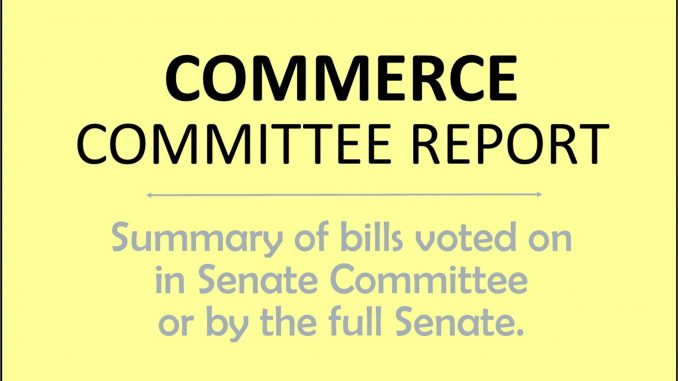
HF 445 – Iowa Utilities Board omnibus bill
FLOOR ACTION
HF 445 (SF 417) is a recommendation by the Iowa Utilities Board (IUB). Currently, rate-regulated utilities may collect different rates on a temporary basis, subject to refund, while a rate review is pending. There are two options under which this occurs. The utility may ask the Board to approve temporary rates based upon previously established regulatory principles, and the Board must rule on that request within 90 days. If the final rates include rate design changes that result in over-collection from some customer classes and under-collection from others, the utility is not typically required to make refunds on a class-by-class basis.
The second option allows the utility to implement temporary rates without Board review or approval within 10 days after the rate case is filed. If the Board later determines that the temporary rates were not based on previously established regulatory principles, the Board must consider requiring refunds based on the overpayments made by each individual customer class, rate zone or customer group.
In recent rate cases, the utilities have tended to use the second option, which allows the utility to begin collecting temporary rates sooner, and allows the Board and the other parties to avoid devoting resources to temporary rate issues, while retaining the right to review the temporary rates at a later date. The bill strikes language allowing utilities to implement Board-approved temporary rates within 90 days of filing, leaving the alternative of automatic implementation of temporary rates 10 days after filing as the only option.
The bill adds an exception to Code Chapter 22 that would apply to the IUB and the Department of Homeland Security & Emergency Management (HSEMD). As amended by the Committee, it would cover the confidentiality of certain information and records relating to cybersecurity or critical infrastructure, the disclosure of which could expose or create vulnerability to critical systems for safeguarding telecommunications, electric, water, sanitary sewage, storm water drainage, energy, hazardous liquid, natural gas systems or other critical infrastructure. It also strikes a requirement that the director of HSEMD make available for examination a list of critical assets used in the critical asset protection plan. The IUB has worked with HSEMD on this proposal.
Iowa Code requires a Board member, Board counsel, or a hearing examiner designated by the board to serve as the presiding officer at each informational meeting on an electric transmission franchise petition. “Hearing examiner” is an undefined phrase that appears in only three other Code chapters. Other provisions in Iowa Code pertaining to the IUB and its interactions with intrastate gas pipelines and hazardous liquid pipelines prescribe an informational meeting, with a “presiding officer” who must be a Board member “or a person designated by the board.” The bill replaces the reference to “hearing examiner” with “presiding officer.”
[3/21: 49-0 (Shipley excused)]
